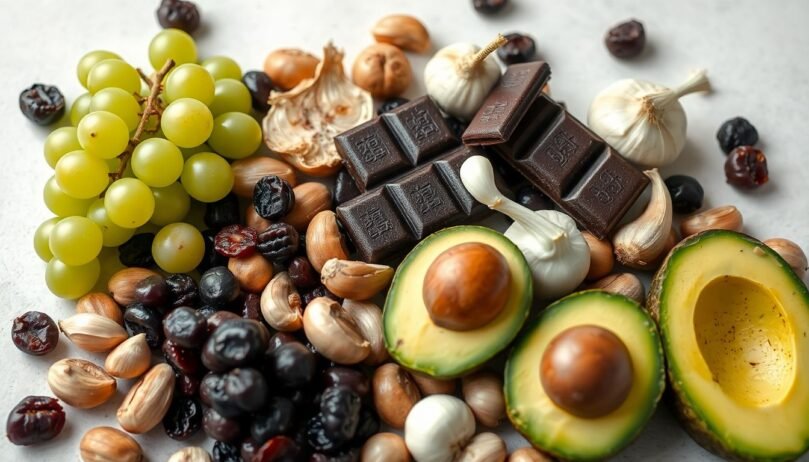Most Dangerous Food’s For Dogs & Cats
- 20 January 2025
- BuyAPet Editorial Team
- All Cats, All Dogs, Cats and Dogs
Most Dangerous Foods for Dogs & Cats: A Pet Owner’s Guide to Safe Eating
Did you know that nearly one in ten dogs and cats will suffer from food poisoning due to human food? Feeding our furry friends “people snacks” can have serious consequences. Use this guide to spot the biggest risks, what symptoms to watch for, and safer swaps your pets will love.
| Food / Item | Why It’s Dangerous | Severity | Key Symptoms |
|---|---|---|---|
| Chocolate | Theobromine & caffeine toxicity | High | Vomiting, rapid breathing, seizures |
| Coffee/Tea/Energy drinks | Caffeine toxicity | High | Restlessness, fast heart rate |
| Grapes & Raisins | Acute kidney failure risk | High | Vomiting, lethargy, reduced urine |
| Onions & Garlic | Red blood cell damage (haemolysis) | High | Weakness, pale gums |
| Xylitol (sugar-free) | Rapid insulin release → hypoglycaemia | High | Sudden weakness, tremors, seizures |
| Macadamia nuts | Neurotoxicity in dogs | Moderate–High | Weakness, vomiting, hyperthermia |
| Alcohol / Raw yeast dough | Ethanol poisoning; bloat | High | Disorientation, pain, breathing issues |
| Avocado | Persin can cause GI upset | Moderate | Vomiting, diarrhoea |
Toxic Treats: Chocolate and Caffeine
Chocolate’s deadly compounds
Chocolate contains theobromine and caffeine. Dogs and cats metabolise these far more slowly than humans, so levels can build to toxic doses. Signs include vomiting, rapid breathing, restlessness and seizures.
Caffeine’s dangers
Coffee, tea and energy drinks can trigger increased heart rate, agitation and—in severe cases—life-threatening toxicity. Even residues or grounds can be risky.
Dangerous Fruits & Vegetables
Grapes & raisins
These can cause severe kidney damage in dogs and cats. Because the toxic dose is unpredictable, complete avoidance is safest.
Onions & garlic
All forms (raw, cooked, powdered) can damage red blood cells and lead to haemolytic anaemia. Symptoms may be delayed by days.
Xylitol
A common sweetener in sugar-free gum, sweets, syrups and peanut butter. It can cause a rapid drop in blood sugar and, in some cases, liver injury. Always check labels.
Harmful Human Foods: Dairy, Meat & Nuts
Dairy products
Many pets are lactose intolerant. Dairy often leads to vomiting and diarrhoea—skip the ice cream “treat”.
Raw meat & bones
Raw meat can carry Salmonella and E. coli. Bones may splinter and cause internal injuries or obstructions.
Nuts
Macadamia nuts are especially dangerous for dogs, causing weakness, vomiting and sometimes hyperthermia. Avoid mixed nuts entirely.
Common Household Hazards
Alcohol
Even small amounts can lead to disorientation, vomiting, depressed breathing and coma.
Avocado
Persin can upset stomachs; the pit is a choking/obstruction risk.
Yeast dough
Dough rises in the stomach, producing gas and ethanol—risking bloat and alcohol poisoning.
Recognising & Treating Pet Poisoning
- Vomiting or diarrhoea
- Lethargy or collapse
- Tremors or seizures
- Fast heart rate, panting, restlessness
- Call your veterinarian or a pet poison helpline at once.
- Share what was eaten, how much, and when.
- Only induce vomiting if specifically instructed by a vet.
Prevention Strategies
- Store human foods out of reach; use childproof latches if needed.
- Educate family and guests not to feed table scraps.
- Check labels for xylitol and other risky ingredients.
- Keep a list of safe pet treats handy to avoid “impulse sharing”.
Making informed choices keeps your companions safe and healthy.
FAQs
Can dogs eat grapes or raisins?
No. Both can trigger acute kidney failure. Seek veterinary help immediately if ingested.
Is any chocolate safe for pets?
No. Dark and baking chocolate are most dangerous, but all types pose a risk. Avoid entirely.
My pet ate something with xylitol—what now?
Call your vet or a poison helpline immediately. Xylitol can cause a rapid drop in blood sugar and requires urgent care.
Can cats or dogs have dairy?
Best to avoid. Many are lactose intolerant, leading to GI upset.
Are bones okay if they’re raw?
Raw bones can still splinter or cause blockages and may carry bacteria. Discuss safer chew options with your vet.
What are safe treat alternatives?
Plain apple slices (no seeds), carrot sticks, cucumber, or vet-approved biscuits. Check that any peanut butter is xylitol-free.
This guide is educational and not a substitute for professional veterinary advice. If you suspect poisoning, contact your veterinarian immediately.
